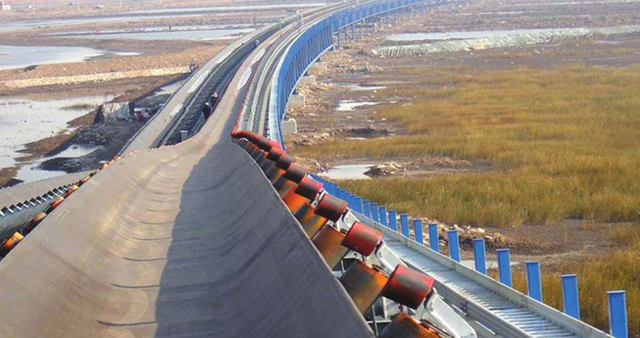Conveyor belts are integral to modern manufacturing and logistics operations. They enable the efficient movement of materials across various stages of production and distribution, significantly enhancing productivity and reducing manual labor. Unibelt, a leading manufacturer and supplier of conveyor belts, provides a comprehensive guide to understanding what conveyor belt is, their applications, types, and the benefits they offer.
A conveyor belt is a continuous loop of material that moves items from one location to another. It is driven by a motor and can be made from various materials, including rubber, plastic, leather, fabric, and metal. Conveyor belts are used in numerous industries, from manufacturing and mining to food processing and packaging.

The belt is the most visible part of the system and is where the items are placed for transportation. The material of the belt varies depending on the application and the nature of the items being transported.
The drive mechanism powers the conveyor belt. It typically consists of a motor and a drive pulley that moves the belt.
Idlers are non-driven pulleys that support the belt and help maintain its tension and alignment.
The frame provides structural support to the conveyor system. It is usually made of steel or aluminum and ensures the stability of the entire setup.
Modern conveyor belts often include advanced control systems that regulate speed, direction, and other operational parameters to optimize performance and efficiency.

Flat belt conveyors are the most common type. They consist of a continuous belt stretched over two or more pulleys. These are ideal for transporting items of various sizes and shapes over short to medium distances.
Modular belt conveyors use interlocking plastic segments instead of a continuous belt. This design allows for greater flexibility in terms of layout and can handle complex routes with ease.
Cleated belts have vertical cleats or barriers attached at regular intervals. These cleats help in transporting loose or bulk materials by preventing them from sliding off the belt.
These conveyors are designed to move products between different heights. The belts are typically equipped with a rough surface or cleats to prevent items from slipping during the ascent or descent.
Roller bed conveyors feature a series of rollers over which the belt moves. This design reduces friction and is suitable for heavy loads.

Conveyor belts are used in a wide range of industries and applications:
In manufacturing, conveyor belts streamline the production process by moving materials through various stages, from assembly to packaging. They are essential in automotive, electronics, and appliance manufacturing.
Conveyor belts in mining operations transport raw materials like coal, ore, and other minerals from extraction points to processing plants efficiently and safely.
The food industry relies on conveyor belts to transport ingredients and finished products through processing, inspection, and packaging stages while maintaining hygiene standards.
Conveyor belts in warehouses and distribution centers facilitate the efficient sorting, handling, and dispatching of goods, improving overall logistics operations.
In agriculture, conveyor belts are used for harvesting, sorting, and transporting crops and produce.
Conveyor belts automate the movement of materials, significantly reducing the time and effort required compared to manual handling. This leads to increased productivity and operational efficiency.
Investing in conveyor belt systems can be cost-effective in the long run. They reduce labor costs, minimize product damage, and lower operational expenses, offering excellent cost performance.
Conveyor belts can be customized to handle various materials and products. With options for different belt types, sizes, and configurations, they are versatile solutions for many industries.
By automating material handling, conveyor belts reduce the risk of workplace injuries associated with manual lifting and moving. They can also be equipped with safety features like emergency stop buttons and guards.
Conveyor belts provide consistent and reliable transportation of materials, ensuring steady production flows and timely delivery of products.

As a leading manufacturer in China, Unibelt excels in designing and producing high-quality conveyor belts. Our expertise and commitment to innovation ensure that we deliver products that meet the highest standards of performance and reliability.
Unibelt’s dedicated R&D team continuously works on developing new materials and technologies to improve conveyor belt performance and longevity.
We offer OEM/ODM services, allowing us to provide customized conveyor belt solutions tailored to the specific needs of our clients. Whether it’s a unique design requirement or specific material properties, Unibelt can deliver.
Our state-of-the-art factory is equipped with advanced machinery and adheres to stringent quality control processes, ensuring that every conveyor belt we produce meets our exacting standards.
Unibelt has established a robust supply and distribution network, ensuring timely delivery and excellent customer support worldwide.
Conveyor belts are indispensable in modern industrial operations, providing efficient, reliable, and cost-effective material handling solutions. Unibelt’s expertise in manufacturing and customizing high-quality conveyor belts makes us a trusted partner for businesses looking to enhance their operational efficiency. With our commitment to innovation, quality, and customer satisfaction, Unibelt is the go-to choice for all your conveyor belt needs.

